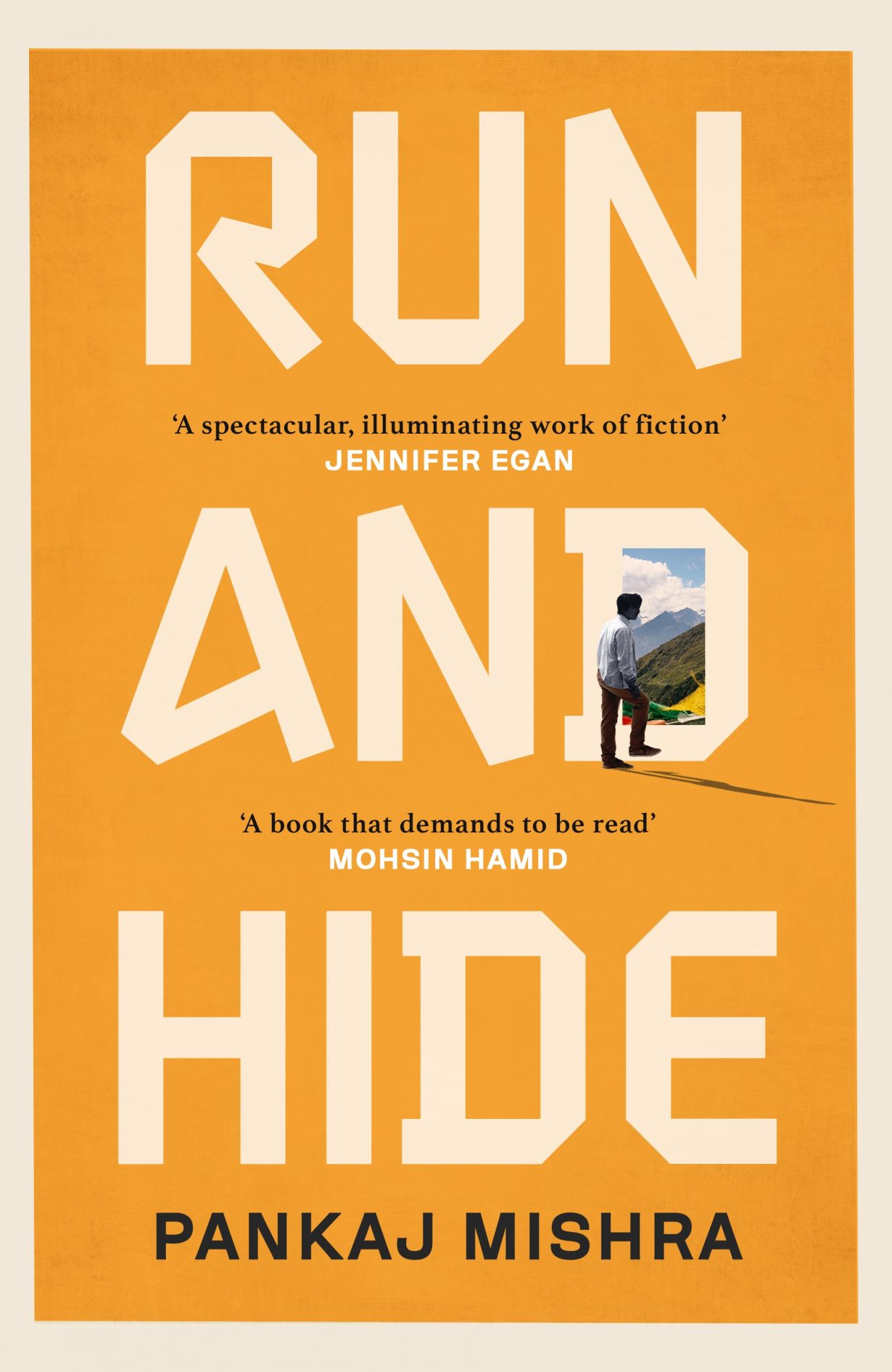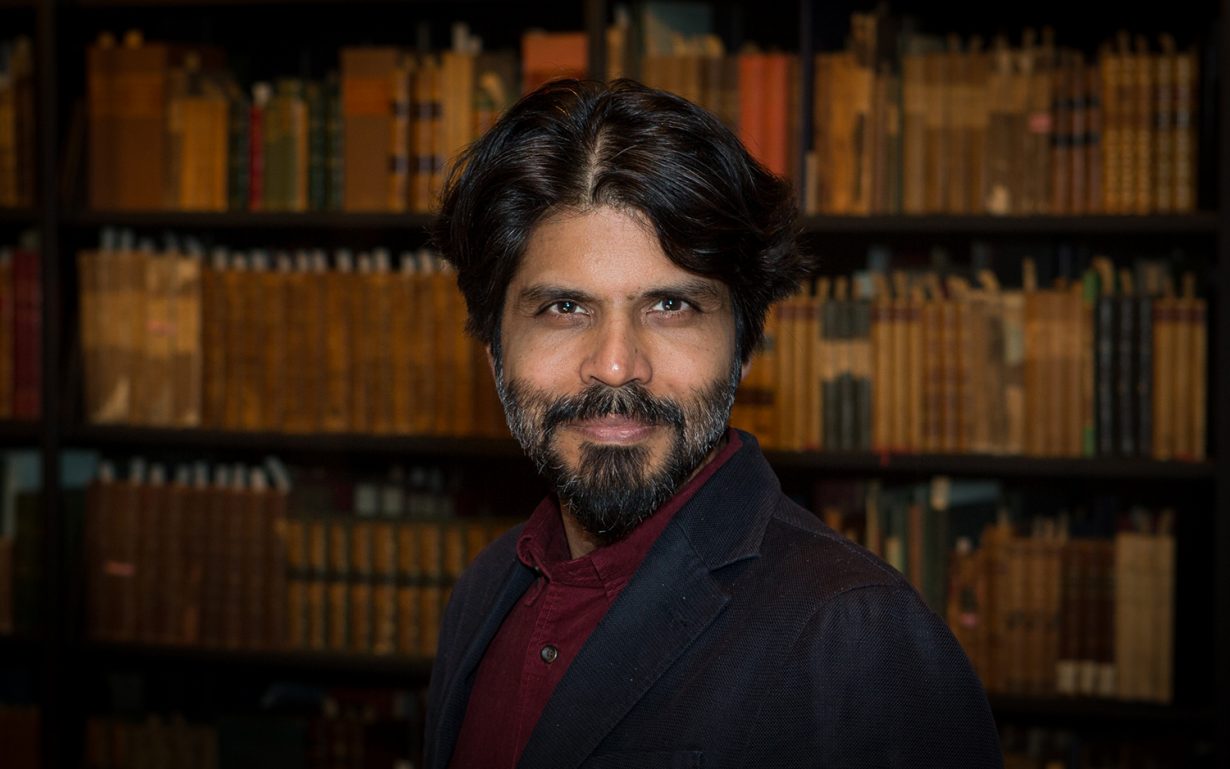Run and Hide is a riveting, excruciating examination of the unrealities we create and the unrealities that are imposed upon us

Pankaj Mishra’s second novel comes 20 years after his first. During that time, he has become, through a series of non-fiction essays and books, one of the most prescient and surgical deconstructors of the causes and lasting (and largely negative) effects of Western liberalism and imperialism, and the impact of both on his native India and more broadly the Global South. Though there are, of course, those who are vehemently opposed to his analyses.
To a degree, Mishra’s return to fiction allows him more scope to explore, from a standpoint that is marginally less judgmental than his non-fiction work, both perspectives: broadly that of the victims and of the executioners in a world shaped by modernisation and globalism. And angry, displaced, disaffected and often toxic masculinity.
The novel centres around the lives of three men from poor backgrounds – Arun, Vivendra and Aseem – who meet as roommates at the Indian Institute of Technology (IIT) in Delhi during the early 1980s and immediately endure a horrifying all-male sexual initiation into the world of elite study, organised by their seniors and ordered in terms of their victim’s place in the caste system (marked by their surnames). From there the trio embark on their respective processes of reinvention (or, as Aseem, channelling the author V.S. Naipaul, whose work haunts this book throughout, puts it, ‘trampling the past’): the ultimate promise of a new, modern India.

Aseem goes on to become an author and media celebrity with an appetite for rampant sex (with pretty young women), and for attacking India’s elites while wanting, nevertheless, to join their social circles; Vivendra, the lowest caste of the three, a Wall Street billionaire with a taste for blonde prostitutes, blowjobs and insider trading; while Arun, who already received a caste upgrade thanks to his father arranging for a school report that exchanged his son’s surname for one designating a position at the top of the caste tree, retreats to the foothills of the Himalayas, to translate unpopular Hindi books into less popular English books and look after his ailing mother. Arun, moreover, is the novel’s narrator, addressing his tale to a dramatically abandoned (and younger) girlfriend, Alia, as a form of aggravated rationale for his actions and for those of his friends.
If the early parts of the novel focus on inequality, class and caste, the latter parts of it, in which Alia (who comes from a background of wealth) is present, introduce the themes of globalisation, diaspora and a generation born with a more fluid and contingent sense of social and national identity. For Arun, coming from a past in which the rules were clear, it’s a comfortable but uneasy encounter with a present in which there are no rules. For Alia and her friends, travel and social media are a means of instantly switching one reality for another. Their focus is on changing the world rather than changing themselves: ‘social media forces everyone to become an operator… We all have to learn how to blend aggressive self- promotion with sincere activism’. Even Arun’s abusive father, whose own reinvention has involved abandoning his family to start a new one, is at this last: spewing much ‘liked’ posts on Facebook demanding the deportation of Sonia Gandhi ‘back to the Vatican’ while hymning praises to India’s current Hindu nationalist leader Narendra Modi. ‘He imagines himself, like so many lately bewitched by the internet,’ Arun muses, ‘to be robustly participating in, not just passively living through great events. Perhaps this was another one of history’s cruel tricks: to forge dreams of agency and self-empowerment, of making history, among people who it has irrevocably unmade.’ Arun, via another form of retreat, ultimately chooses to unmake himself.
Run and Hide is a clinical, riveting, at times excruciating, examination of the forces that shape society today; of the unrealities we create and the unrealities that are imposed upon us. And whether or not there is any true sense of ‘we’ anymore. It doesn’t end well for anyone.
Run and Hide by Pankaj Mishra, Hutchinson Heinemann, £16.99 (hardcover)